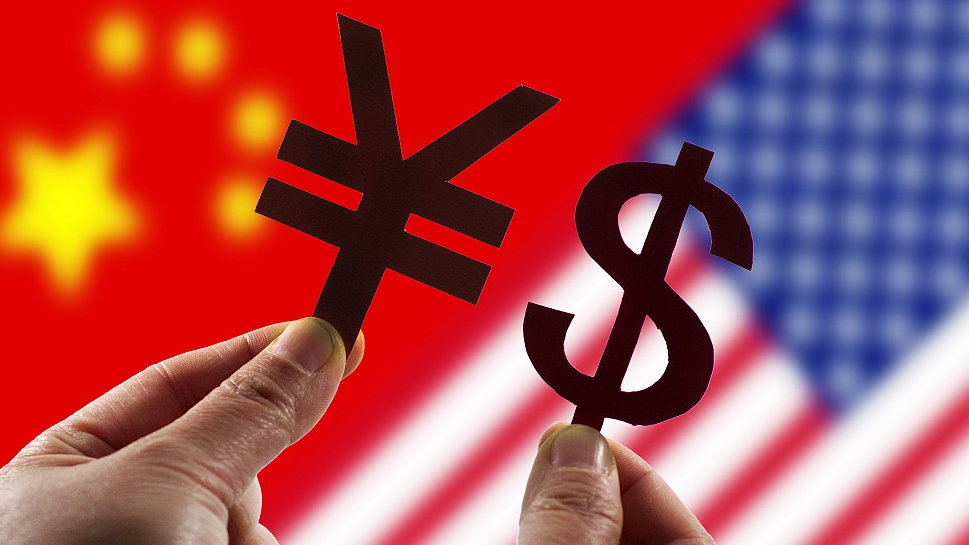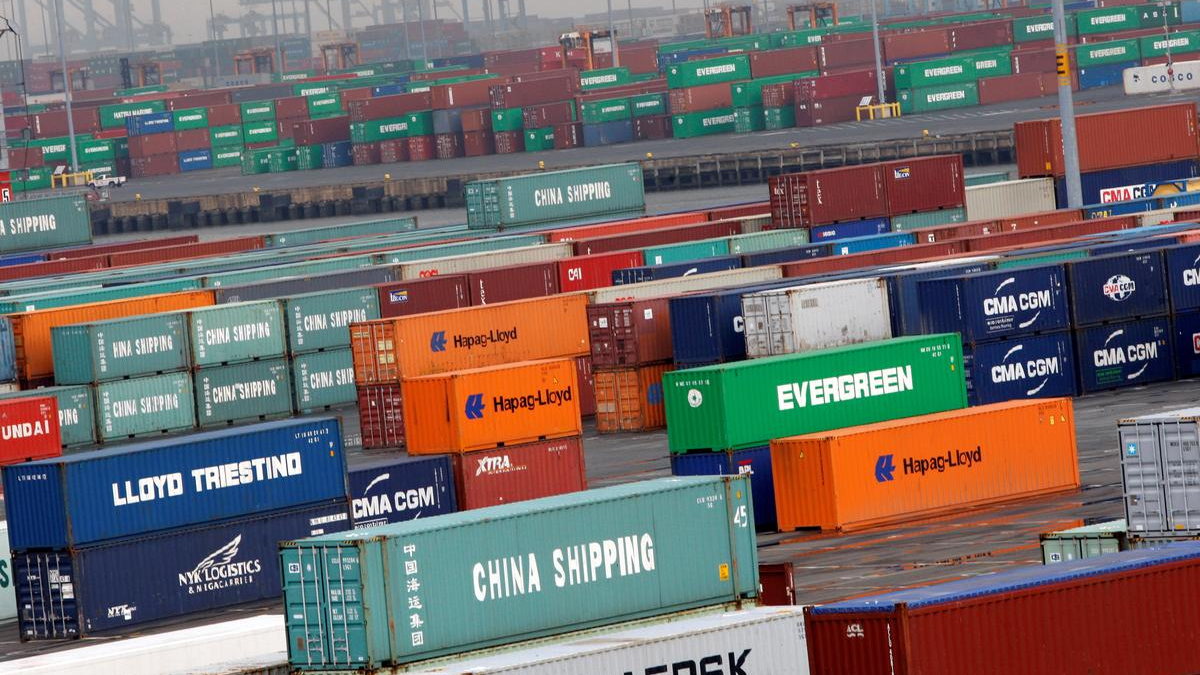

Editor's Note: Tom Fowdy is a British political and international relations analyst and a graduate of Durham and Oxford universities. He writes on topics pertaining to China, the DPRK, Britain, and the United States. The article reflects the author's opinions, and not necessarily the views of CGTN.
Despite trade uncertainty with the United States, foreign direct investment (FDI) into China has continued to increase in real terms. As reported by Xinhua, total FDI in China expanded 6.9 percent year on year to 85.36 billion U.S. dollars, with inflows growing 3.2 percent.
Over 27,704 new foreign-funded enterprises were established in the first eight months of the year. In addition, a study from the Rhodium Group Consultancy Firm also found that FDI from the United States had increased 1.5 percent in the first half of the year, totaling 6.8 billion U.S. dollars, with most of the money being centered in big construction or real estate projects.
The data comes amid a relentless campaign by the mainstream media to portray China's economy in the most negative light possible, eager to vindicate the impact of a resulting slowdown from Trump's tariffs and a disruption of export-related businesses.
These reports are often politically and ideologically biased, often eager to confirm the longstanding prejudice of an economic system they believe is unworkable and "destined" to collapse.
However, there is one thing they are missing: China is emerging as a "Consumer Superpower" and in turn offers more opportunity to foreign businesses than anywhere else in the world. Given such, FDI in China is not about to go away any time soon.
Western coverage of China's economy might be described as relentlessly negative. If you follow coverage in leading American outlets, they perpetuate a narrative that China's economy is on the verge of catastrophe and that Donald Trump is bringing the country to its knees and that businesses are deserting the country in droves.
However, a more astute observer will note that this is not a new phenomenon, but a very entrenched pattern of reporting.
Even before the trade war and for that matter, for years, coverage of China's economy has continued to be overwhelmingly pessimistic. Why? Because it is framed in the light of ideological and political prejudice, Western commentators believe that the liberal, fully laissez-faire system of their own countries is true and superior way to pursue economics and in the typical Western sense, they ought to evangelize this "truth" to others.
In turn, owing to the legacy of the Cold War, they also believe that socialist-based systems are doomed to inevitable failure and collapse.

Shipping containers are seen at the Port Newark Container Terminal in Newark, New Jersey, U.S. /Reuters Photo
Thus, for China, a socialist market economy which mixes both state and private initiatives together, its longstanding success has been a headache for Western commentators. Owing to their ideological outlook, the belief is entrenched within their work that one day China "must" fail and it is only a matter of "when."
This has produced some extraordinarily misleading books, such as Gordon Chang's "The Coming Collapse of China" (2001) and in turn has also been a flawed strategic motivation behind Trump's trade war (with advisors goading on the belief he can push China’s economy to collapsing). Thus, these assumptions shape coverage in turn: China must implode.
Given these leading assumptions, things are never quite as bad as they seem. Businesses continue to see opportunity in China. It is constantly overlooked that with a population of 1.4 billion, China constitutes the largest consumer base on Earth.
Despite the media obsession with exports, 75 percent of China's growth this year was rooted in consumer spending. This is something American consumers cannot match.
James McGregor, chairman at consultancy Alpo, stated that American companies were "doing deals and expanding their China operations" and that if they were relocating, such was to avoid "rising wages" than tariffs. Above all, he noted companies "know that China will continue to be the world's most active manufacturing center."
In addition, head of the American Chamber of Commerce in Shanghai Ker Gibbs stated, "Companies we speak to are still investing and many are expanding to second and third-tier cities" and "they tell us that the China consumer growth story is still strong."
As President of the U.S.-China Business Council, Craig Allen commented, "It's very important for worldwide competitiveness that these companies be in China and be successful there" – with the council's survey showing 97 percent of member businesses having increased their profitability in 2019.
Given this, it is fair to conclude that despite the trade war, China will remain firmly as a pivotal hub for business and investment. Obsessed with confirming their own ideological prejudices and preaching the country's impending doom, the Western media have failed to recognize the simple fact that exports to the United States does not constitute the entire world of Chinese business, dramatically missing the bigger picture.
As the data shows, China is developing into a "Consumer Superpower" and in turn will continue to draw in the entrepreneurs of the world in pursuit of fortune, whether Washington likes it or not.
(If you want to contribute and have specific expertise, please contact us at opinions@cgtn.com.)

Copyright © 2018 CGTN. Beijing ICP prepared NO.16065310-3
Copyright © 2018 CGTN. Beijing ICP prepared NO.16065310-3